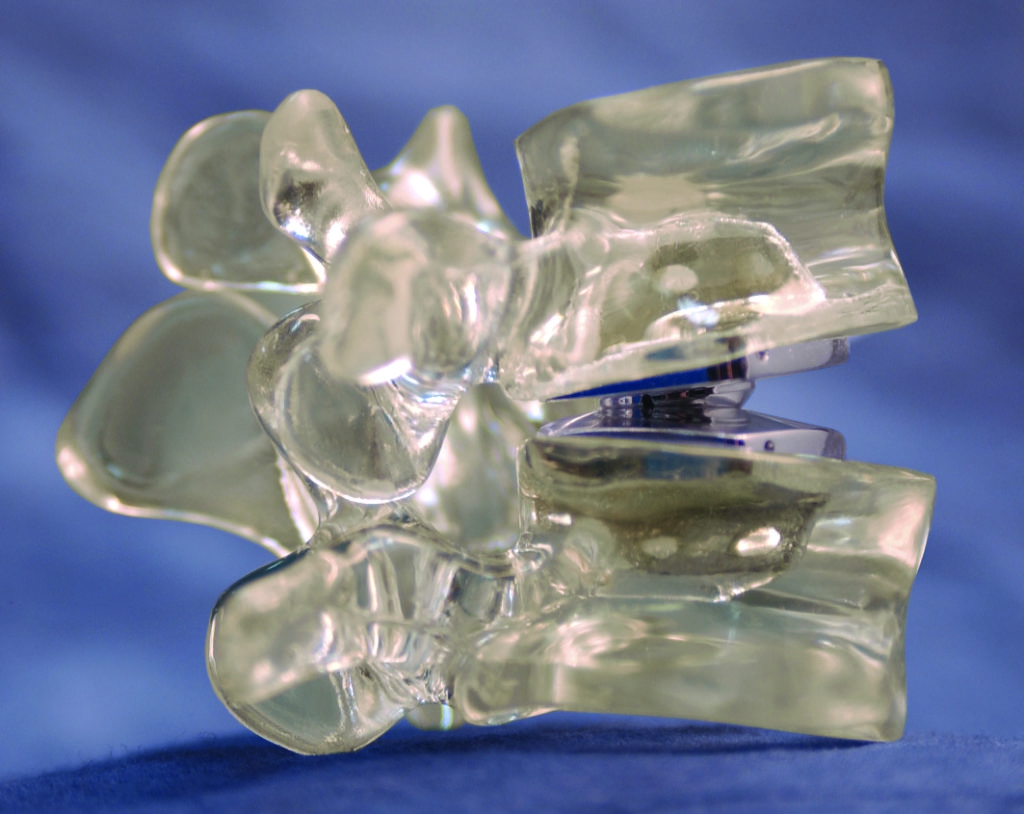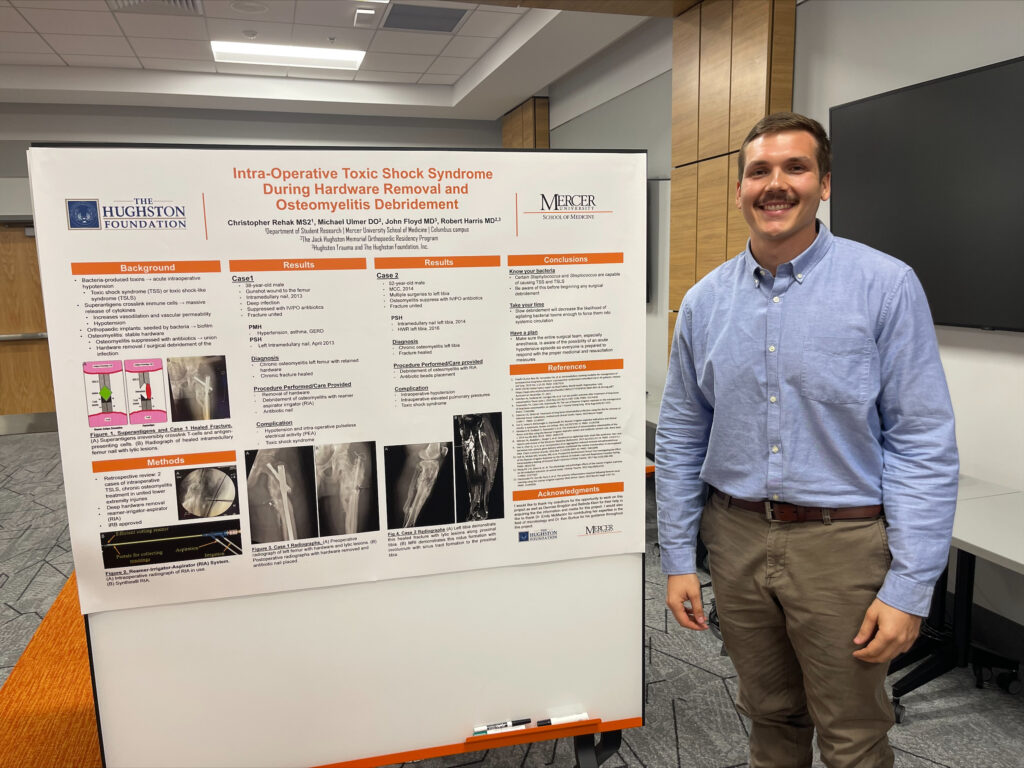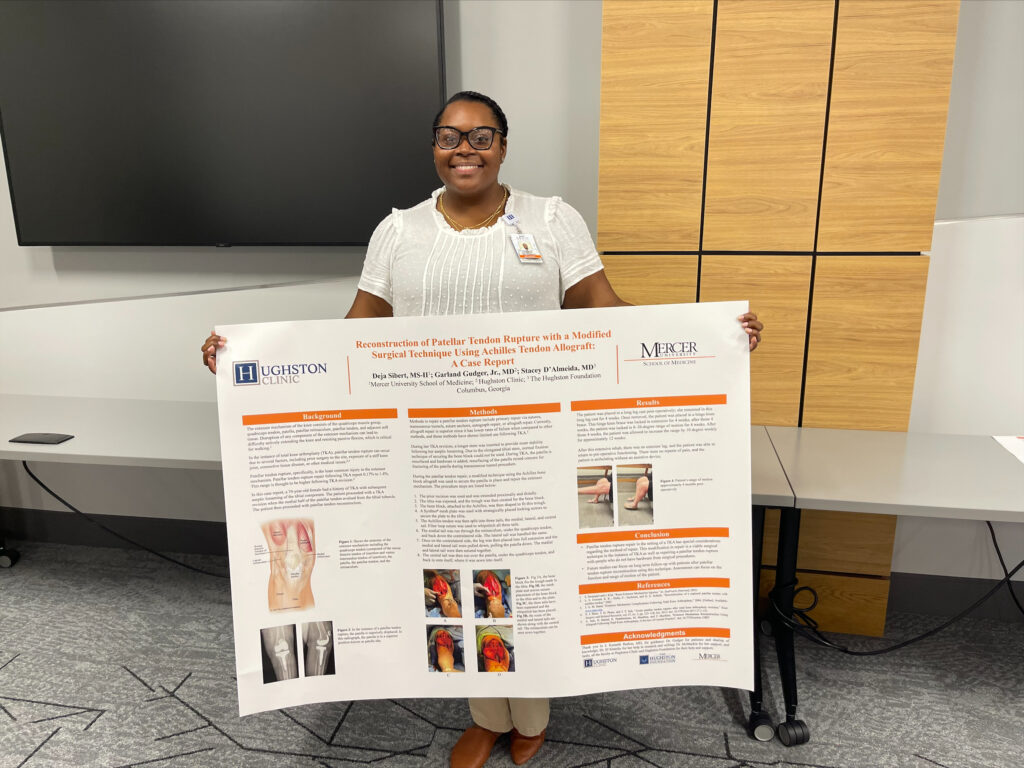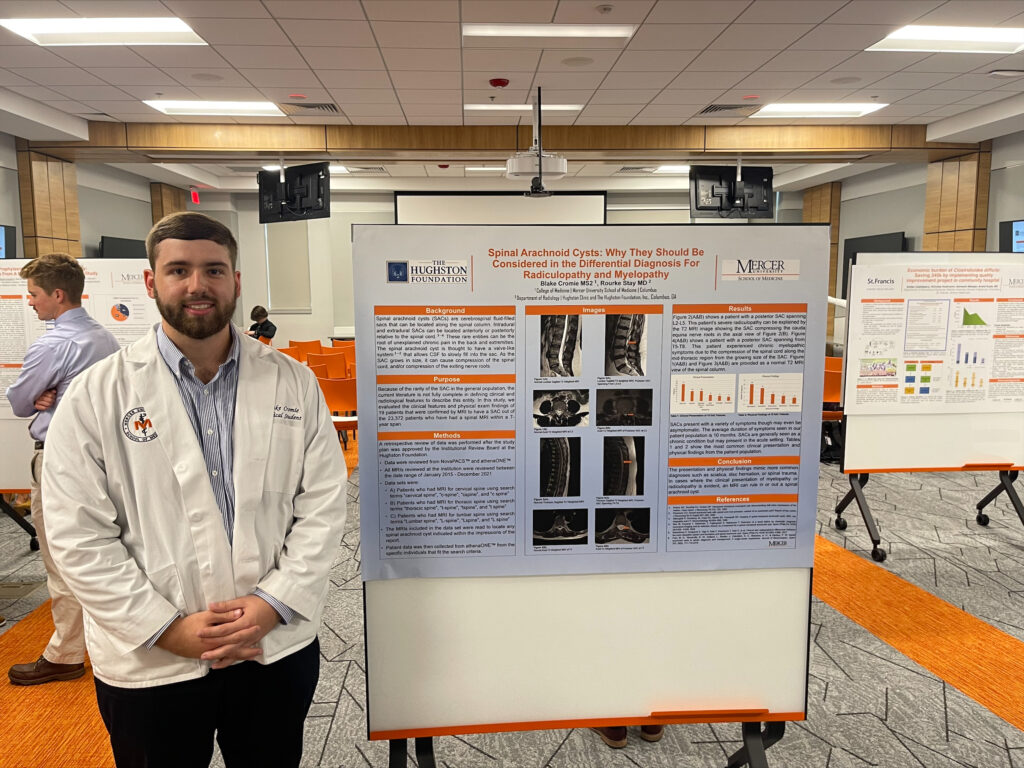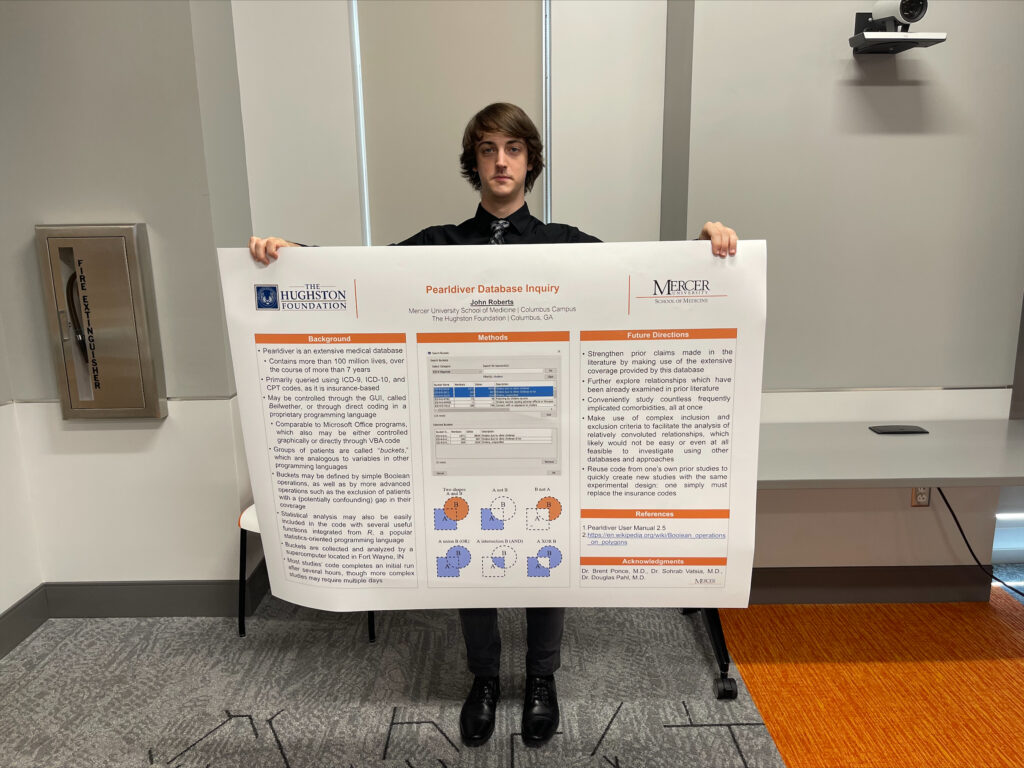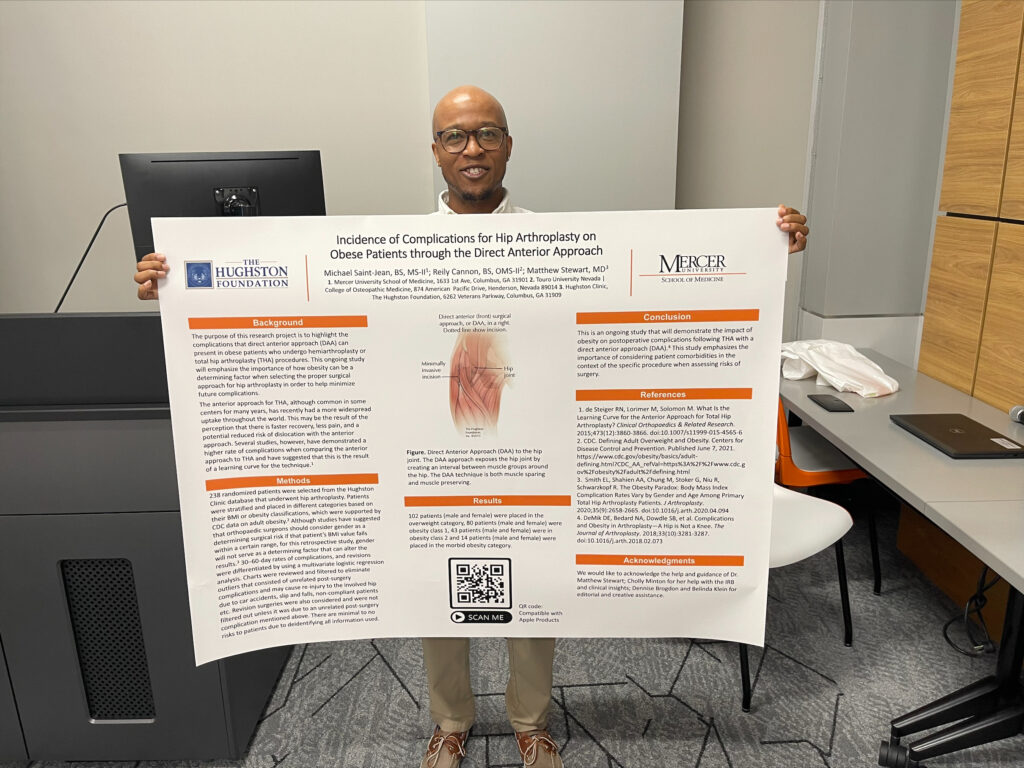The Cutting Edge
Hughston physicians publish regularly in their areas of specialization and present their work worldwide. As part of their training, our fellows and residents are also involved in individual and collaborative research projects for publication. Through the research they do at the Foundation, our healthcare professionals not only stay current but on the cutting edge of orthopedics and sports medicine. This enables them to offer you the best and most innovative patient care.
The Basis of Our Patient Care
Research endeavors at the Hughston Foundation include Food and Drug Administration (FDA)-regulated clinical trials, and staff-, fellow-, and student-conducted research studies. Industry sponsors have come to rely on the thorough and professional work done by Hughston researchers, and our investigators and staff are in great demand as participants in the latest orthopedic clinical trials. Thanks, in part, to Dr. Hughston’s legacy of meticulous data recording and indexing, we have the ability to conduct follow-up studies on the long-term outcomes of surgical procedures and treatments.
Industry Sponsored Research and Clinical Trials
The approval of a new drug or device developed under the auspices of the United States Food and Drug Administration (FDA) requires a tiered approach. Devices are tested mechanically and drugs biologically to determine whether they are not only advantageous but also safe. Only after passing all the benchmarks is the device or drug approved for human trials. The FDA permits trials in a limited number of volunteer subjects and then reviews their outcomes. If the drug or device is safe and effective in accomplishing its stated purpose, it can then be released for patient use.
For over 3 decades, the Hughston Foundation has been involved with the FDA in carrying out clinical trials. The integrity we bring to our oversight, data collection, and record maintenance, as well as to the protection of patients’ rights and safety, has made us a trusted FDA study site. Patients who participate in such studies receive the benefits of cutting-edge technology years before it is available to the general public.
Foundation-Supported Research
Foundation-supported research may focus on comparing an existing treatment or operation with a new one, and for decades, Hughston surgeons have pioneered surgical procedures now accepted as standards of care worldwide. Additionally, our clinical research presentations have been highlights on annual national and international subspecialty meeting programs.
Since most of the clinical research carried out annually at the Foundation involves a new treatment protocol or operative technique rather than a drug or device, it does not fall directly under FDA oversight. Regardless of this, the Hughston Foundation and its Institutional Review Board (IRB) strive to provide the same quality oversight, research guidelines, and patient advocacy and protection afforded to participants in FDA trials.
Whether developing new procedures or testing new protocols, our research goal is always better patient outcomes.
Fellow/Resident/Student Research
As part of their training, Hughston medical fellows and residents are expected to conduct clinical research and then report on and publish their findings. Medical students can also participate in research and publication. While these projects may not introduce a new drug, device, or surgical procedure, they often answer previously unanswered clinical questions and thus contribute meaningfully to existing medical knowledge. At the Foundation, we pair our trainees with a research mentor from our staff of attending surgeons and guide them in selecting a topic, designing a study along sound epidemiological principles, conducting significant statistical analyses, and producing work that qualifies as evidence-based medical research. As with all research carried out at the Foundation, our primary objective is to benefit and protect our patients.
A novel machine learning model to predict revision ACL reconstruction failure in the MARS Cohort
Is there a threshold limit for body mass index for patient undergoing primary total knee or total hip arthroplasty?
Does the use of a tensioning device improve stability for suture fixation of glenoid bone constructs? A biomechanical analysis.
Management of posttraumatic posterior shoulder instability following a Latarjet: A case report.
Michelangelo’s David: Imperfect Perfection
Institutional Review Board
All research involving human subjects is reviewed and monitored by our own Institutional Review Board (IRB). The Hughston IRB operates according to federal regulations set forth by the US Department of Health and Human Services and the Food and Drug Administration. The IRB meets quarterly to review research activities and each study is reviewed on an annual basis. Additionally, the IRB ensures that patients’ rights and welfare are protected and that all Health Insurance Portability and Accountability Act (HIPAA) requirements are met with regard to patient access and the privacy of protected health information.

